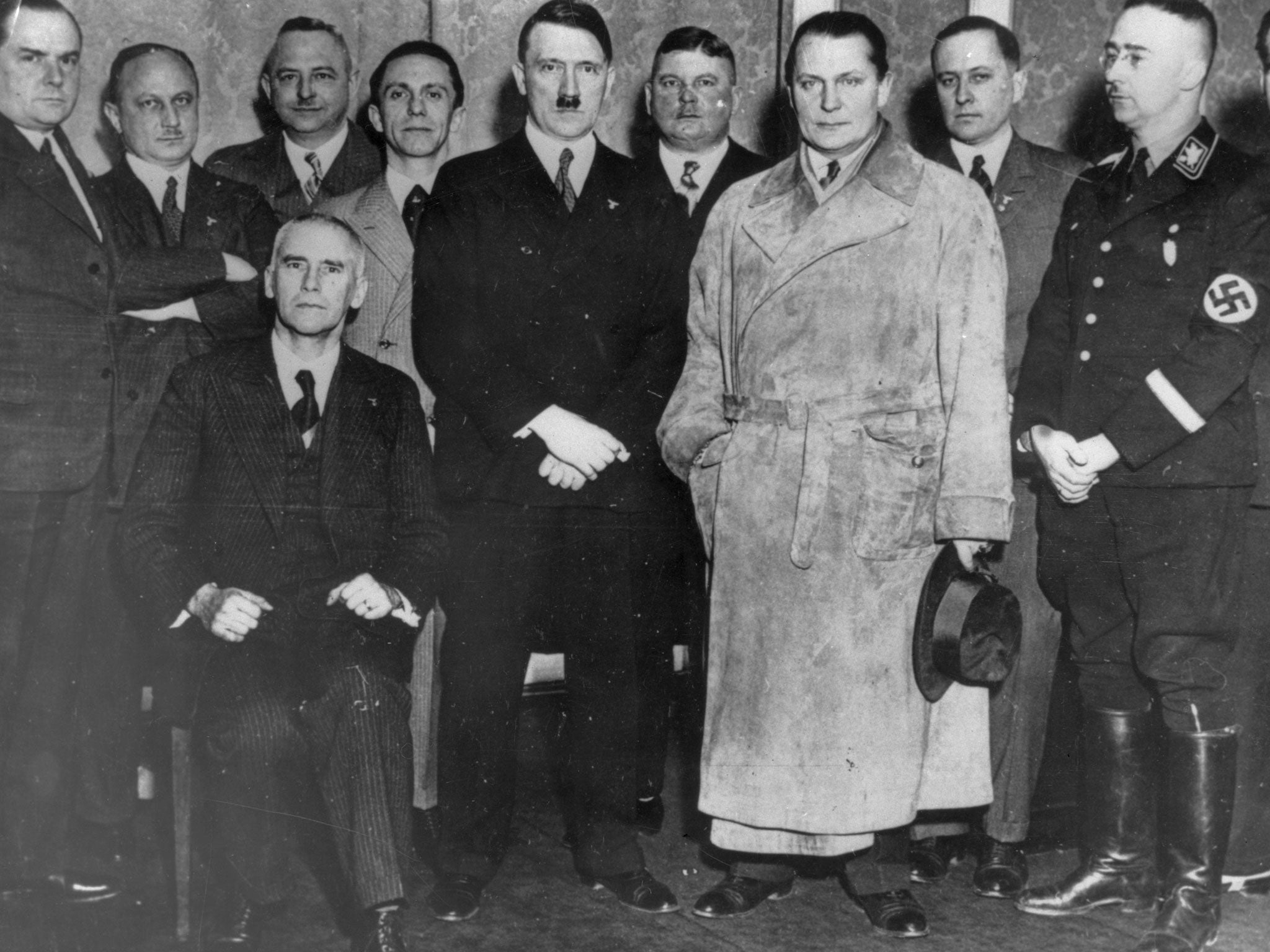Hollywood helped Adolf Hitler with Nazi propaganda drive, academic claims
Historian Ben Urwand says he has cache of documents that prove Tinseltown enthusiastically cooperated with Nazis' global propaganda effort

Your support helps us to tell the story
From reproductive rights to climate change to Big Tech, The Independent is on the ground when the story is developing. Whether it's investigating the financials of Elon Musk's pro-Trump PAC or producing our latest documentary, 'The A Word', which shines a light on the American women fighting for reproductive rights, we know how important it is to parse out the facts from the messaging.
At such a critical moment in US history, we need reporters on the ground. Your donation allows us to keep sending journalists to speak to both sides of the story.
The Independent is trusted by Americans across the entire political spectrum. And unlike many other quality news outlets, we choose not to lock Americans out of our reporting and analysis with paywalls. We believe quality journalism should be available to everyone, paid for by those who can afford it.
Your support makes all the difference.Hollywood is not widely thought of as providing much support to Hitler's regime, instead producing a wealth of anti-Nazi films during the Second World War, ranging from Casablanca to The Great Dictator.
But now a young historian says that in the years before the war, Tinseltown was marching to a very different tune. Ben Urwand, 35 has written a book, The Collaboration: Hollywood's Pact With Hitler, in which he cites documents that prove, he says, US studios acquiesced to Nazi censorship of their films actively cooperated with the regime's world propaganda effort.
“Hollywood is not just collaborating with Nazi Germany,” Urwand told the New York Times. “It’s also collaborating with Adolf Hitler, the person and human being.”
Urwand, reportedly a folk musician from Australia who has become a member of the Society of Fellows at Harvard, said his interest was first aroused as a student in California when he read an interview with the screenwriter Budd Schulberg referring to meetings between the MGM boss Louis Mayer and a representative of the Nazi regime to discuss cuts to his studio's films.
The book describes many Jewish studio bosses not only censoring films to suit the regime, but also producing material that could be inserted into German propaganda films and even financing German weapons manufacturing. The collaboration of Hollywood with the regime began in 1930, says Urwand, when Carl Laemmle Jr of Universal Studios agreed major cuts to the First World War film All Quiet On The Western Front after riots in Germany instigated by the Nazi party.
“I would say there were a few shocking moments, probably starting with the document I discovered in the National Archives in Washington which explained how MGM was insulating its profits,” Urwand told the Times of London.
“There was a law in Germany that foreign businesses couldn't export currency. They made an exception for MGM because they were financing the production of German armaments.”
After Hitler came to power, the book details regular studio visits by representatives of the regime, including Georg Gyssling, the special consul assigned to monitor Hollywood, who watched films and dictated scene-by-scene requests for cuts. In June 1939 MGM gave 10 Nazi newspaper editors a tour of its studio in Los Angeles, and during the 1930s hardly any Jewish characters appeared in Hollywood films.
Despite some raised eyebrows from other academics over the book's title, Urwand is unequivocal about it:
“Collaboration is what the studios were doing, and how they describe it.”
Join our commenting forum
Join thought-provoking conversations, follow other Independent readers and see their replies
Comments